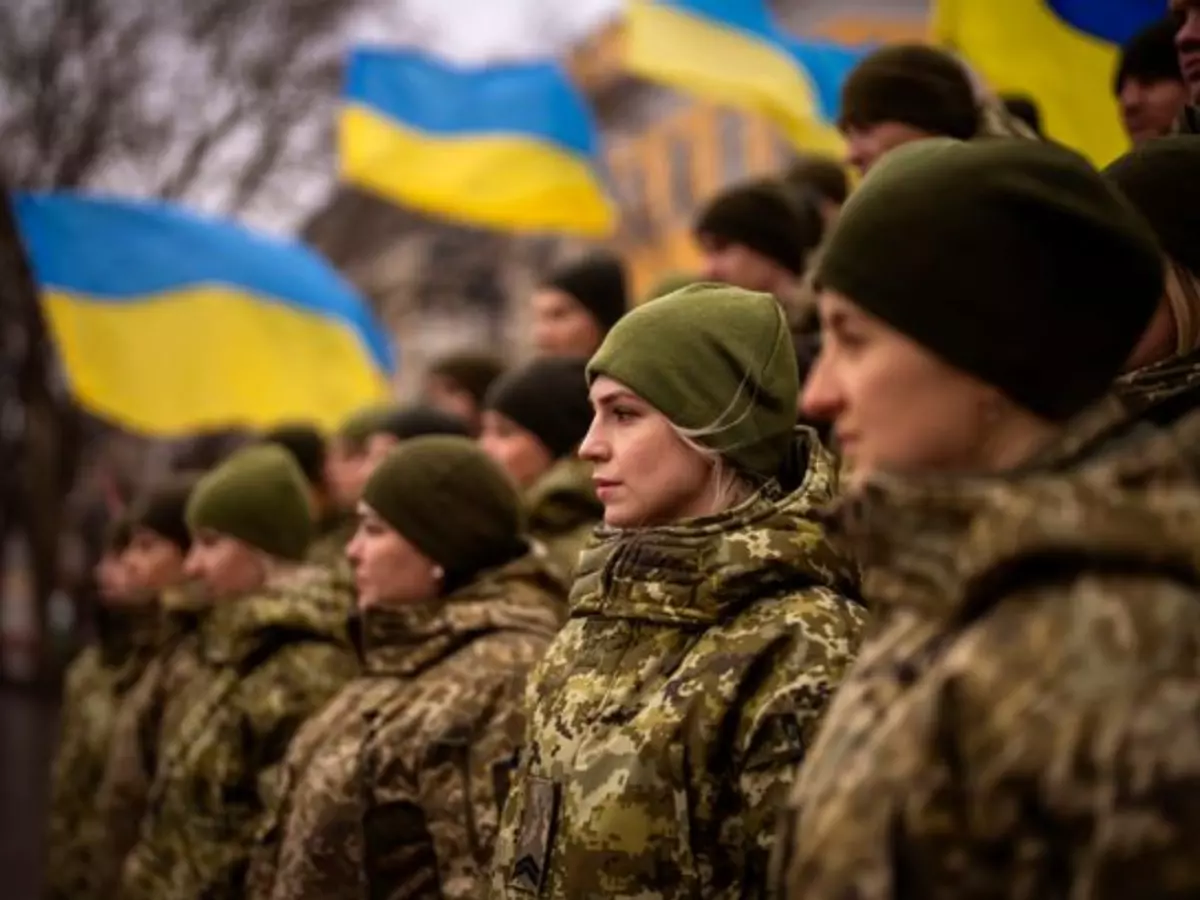Explained: What Is NATO And What Is Its Role In Russia-Ukraine War?
As Russia launched a full-blown attack on Ukraine by land, sea and air on Thursday. It's one of the biggest security crises in Europe since World War II by invading Ukraine, with barrages of missiles and artillery accompanying troops as they entered the country from multiple directions.

Russia launched a full-blown attack on Ukraine by land, sea and air on Thursday. It's one of the biggest security crises in Europe since World War II as Russia invaded Ukraine, with barrages of missiles and artillery accompanying troops entering the country from multiple directions.
A key source of the friction that led to the invasion has been Ukraine's desire to join NATO ¨C something President Putin strongly opposes.
 Reuters
Reuters
During the Russia-Ukraine crisis, many of us are hearing about NATO and NATO member countries, but not many know about this intergovernmental military alliance and who all are its members. So without wasting your time, here's everything about NATO:
What is NATO?
NATO's full form is North Atlantic Treaty Organisation and is also known as the North Atlantic Alliance. NATO is a military alliance that was created in 1949 by twelve countries including the United States, UK, France and Canada. Now NATO is a group of 30 member countries that agree to work together to ensure the security of the Northern Atlantic area. NATO's headquarters are located in Brussels, Belgium.
ALSO READ: The Moscow Kremlin: The Official Residence Of The Russian President
What is the purpose of NATO?
 What is NATO? Here's The Full List Of Countries Are In NATO | AFP
What is NATO? Here's The Full List Of Countries Are In NATO | AFP
NATO's purpose is to guarantee the freedom and security of its members through political and military means, according to the NATO website. NATO was formed largely to counter the threat from the Soviet Union post World War II. The USSR had created its own military alliance in 1955 to counter NATO, called the Warsaw pact. Warsaw got disbanded with the collapse of the Soviet Union in 1990 and several of the Warsaw pact countries became NATO members.
NATO constitutes a system of collective security under the system, an attack on one member state is considered as an attack on all and it calls for a collective response. This ensures the collective security of all NATO member states.
NATO member countries list
 What is NATO? Here's The Full List Of Countries Are In NATO | AFP
What is NATO? Here's The Full List Of Countries Are In NATO | AFP
Currently, NATO - the military organization has 30 members. North Macedonia is the latest to join NATO in 2020. NATO member countries include two North American countries, 27 European countries and one Eurasian country. Here's the list of NATO member countries:
1. Albania (2009)
2. Belgium (1949)
3. Bulgaria (2004)
4. Canada (1949)
5. Croatia (2009)
6. Czech Republic (1999)
7. Denmark (1949)
8. Estonia (2004)
9. France (1949)
10. Germany (1955)
11. Greece (1952)
12. Hungary (1999)
13. Iceland (1949)
14. Italy (1949)
15. Latvia (2004)
16. Lithuania (2004)
17. Luxembourg (1949)
18. Montenegro (2017)
19. Netherlands (1949)
20. North Macedonia (2020)
21. Norway (1949)
22. Poland (1999)
23. Portugal (1949)
24. Romania (2004)
25. Slovakia (2004)
26. Slovenia (2004)
27. Spain (1982)
28. Turkey (1952)
29. United Kingdom (1949)
30. United States (1949)
Who controls NATO?
NATO's Command Structure is under the authority of the Military Committee, NATO's highest military authority composed of the Chiefs of Defence of all twenty-nine member countries. The NCS consists of two strategic commands: Allied Command Operations (ACO) and Allied Command Transformation (ACT).
Is Ukraine under NATO?
 What is NATO? Here's The Full List Of Countries Are In NATO | plainsmenpost
What is NATO? Here's The Full List Of Countries Are In NATO | plainsmenpost
No, Ukraine is not a NATO member country. On 12 June 2020, Ukraine joined NATO's enhanced opportunity partner interoperability program, which means that it may join NATO in the future.
What is Russia's issue with NATO?
Russia wants assurance from the West that Ukraine will never be allowed to join NATO. Kyiv is currently a ¡°partner country¡±, which implies that it will be allowed to join the military alliance in the future.
However, the US and its western allies are refusing to bar Ukraine from NATO, saying it is a sovereign country that is free to choose its own security alliances.
For more interesting stories, click here.